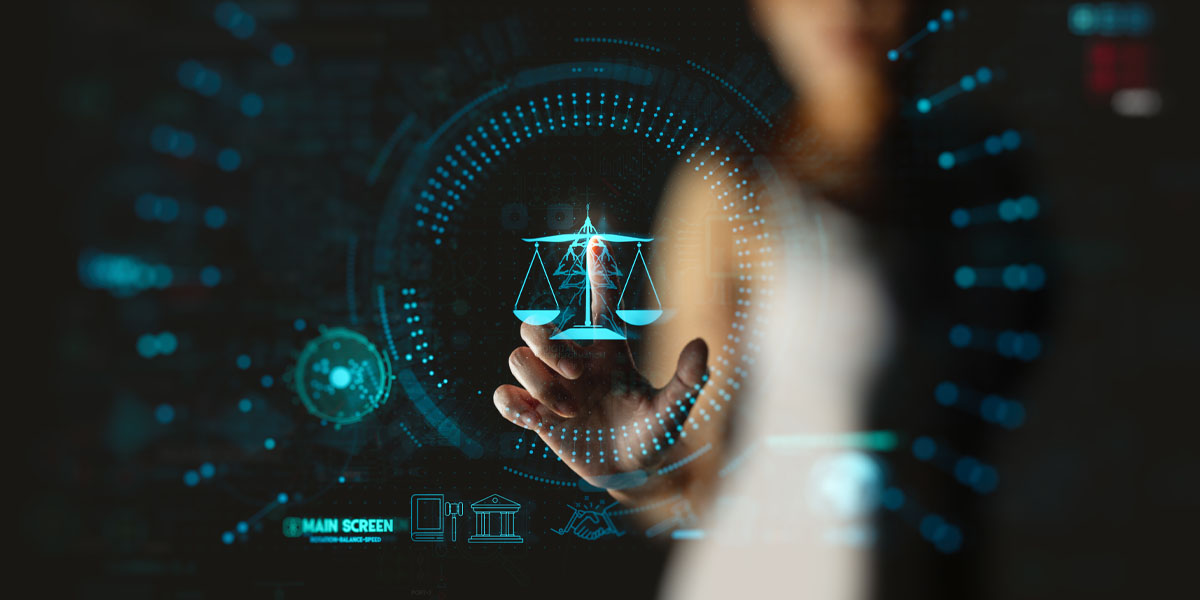Technology bursts into law firms
The legal sector has been experiencing a major change in recent years. The main value of the industry lies in the very knowledge provided by the legal professionals themselves. However, such knowledge, in a world that is moving towards digitalization and process automation, loses value if it is not steeped in the constant rain of technological advances that are transforming society and businesses.
In the race to implement the most cutting-edge technology, China is in the lead. The Asian giant uses artificial intelligence (AI) -without any previous debate on its regulation- in some courts to help judges with the most repetitive and automatable issues. At some point, we will see something similar in our courts, but it must be done with all guarantees. At the beginning of the year, the European Commission published its white paper on artificial intelligence, in which it calls for regulation that does not slow down innovation and investment, and that protects citizens’ rights.
Digitalization and Legal Tech are knocking on the jurist’s door. The application of technology to different legal processes and the knowledge of new tools, is not only facilitating the work of professionals, but also posing a great opportunity to improve services and generate new business verticals. “The digital transformation is not optional. You either change or it changes you. Technological disruption has revolutionized the way we behave, relate, and work. Legal Tech opens new doors and allows professionals to differentiate themselves from the rest, and this differentiation is key to facilitating employability,” says Antonio Serrano Acitores, Doctor of Law and CEO of Spacetechies, a training center in digital skills for children, adolescents, and teachers.
“The incorporation of technology allows legal professionals to go further, innovate, generate new business models, and encourage entrepreneurship. In addition, it allows them to do their work more efficiently in a market that is under strong pressure in terms of fees,” explains Eugenia Navarro, Director of the Legal Tech program at Esade and Professor of Legal Marketing and Business Development at the school.
There are several technologies that are particularly relevant for lawyers. Clara Piloto, Director of Global Programs at MIT Professional Education and expert in business development, maintains that “professionals in the sector must be prepared to offer more efficient, agile, and improved processes. It is fundamental that jurists acquire a wide knowledge of the most influential technologies in digital transformation, such as blockchain, the cloud, artificial intelligence, or the Internet of Things”.
Digital knowledge management tools are another way to systematize legal knowledge to prevent it from being lost. “Document automation technology allows lawyers’ knowledge to be stored and systematized. In this way, with this structured knowledge, the response to the client can be faster and more precise”, explains Alejandro Esteve de Miguel, co-founder and CEO of Bigle Legal.
CULTURAL CHANGE
Another added advantage of the digitization of law firms is the improvement of work-life balance. “As soon as lawyers stop investing so many hours in mechanical and repetitive tasks with a high risk of error, such as the writing of manual documentation, they will have valuable time to use for other tasks with greater added value”, continues Esteve.
Technology is the tool and the catalyst of change, but to face this process of digital transformation it is first necessary to make a cultural change “which affects people and their training to strategically understand the changes in the environment,” explains Navarro. “Lawyers are seeing how a part of the services provided can be standardized. The current moment requires adequate knowledge and skills to face the challenges that are coming,” she concludes.
Source: La Vanguardia
